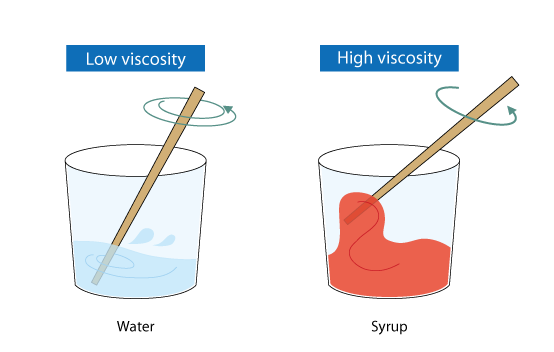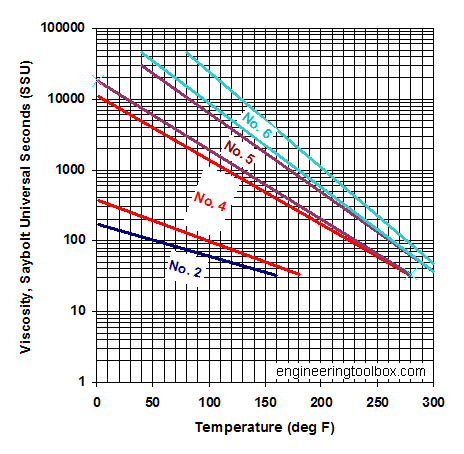

For example, if viscosity increases, then it will take longer for the oil to pass through the hydraulic system. The hydraulic oil viscosity depends on how smoothly it flows. This is particularly important as applications become more demanding. Hydraulic oil viscosity needs to be able to work effectively to enable smooth operation no matter the temperature. A temperature drop makes the oil move less easily and it becomes more viscous. Similarly, when you put cooking oil into a pan and heat it up, the oil moves faster the longer it is heated. For instance, if the temperature of the oil increases then the viscosity decreases.

In hydraulics, there’s a direct relationship between hydraulic oil viscosity and its temperature. I'll try to find the number for you.Hydraulic oil viscosity is vital when choosing the right hydraulic oil for your system.

There is an SAE paper that you should read. It's not possible to make all of these with one chemistry because for one thing they are using different friction materials and the friction characteristic is a function of fluid, friction material, reaction surface and control system. It is possible to make all of these fluids using the same chemistry (same friction) but different base oils. HYUNDAI SP-III is a high viscosity and HYUNDAI SP-IV is a low viscosity. NISSAN MATIC J is a high viscosity and NISSAN MATIC S is a low viscosity. HONDA Z-1 is a high viscosity and HONDA DW-1 is a low viscosity. TOYOTA T-IV is a high viscosity and TOYOTA-WS is a low viscosity. MERCON-V was a high viscosity and MERCON-LV is a low viscosity fluid. Several reasons have been given, but one is for fuel economy.ĭEXRON-III was a high viscosity fluid and DEXRON-VI is a low viscosity fluid. There have been many OEMs which recently have changed from a heavier viscosity ATF to a lower viscosity. I trust both of them, and would see them as better suited than dex VI. Personally, I'd probably go a 3rd route and either use a quality ATF+4 like castrol, or just go to amsoil. As long as the fluids don't do anything bad to the synchro material, it'd probably be ok to try. In your MT- the only concern I'd have is synchro behavior.

Just my theory based on fooling with them for a while. I suspect that those units had less computer bias in their shifts, using more old-school valve body activity to modulate pressures, instead of pulse-width solenoids. That said, I've known several people to cross between the two in the RWD jeeps (42RE, 44RE?) with no ill effects. For this reason, in an AT, I wouldn't consider them easily compatible. the extra friction caused the computers to continually chatter the clutches during shifts because they were locking in too quickly. That's why the programming in the 41TE and it's predecessor didn't like it. LIGHT YEARS better than ATF+3 and the original DexIII its based on, even if in some ways Dex VI beats it.ĭex VI has more grip than the atf+3/4, which are friction modified (though I dislike that term, now, as many fluids are "F/M"). And I know one person who's been running it in a Chrysler 41TE transaxle as a "test" because of that- so far so good, but I wouldn't recommend it! ATF+4 is a good semi-syn fluid. I hear that Dex VI actually is better in vis retention and low oxidation than ATF+4. More like Dexron III in initial viscosity, and also holds it better. GM fills the same tranny with Dexron VI, and there are countless aftermarket fluids that are better than ATF+4 for the application and actually produce better shifting by doing a better job of eliminating the "Tremec nibble" into second gear.
#LOW VS HIGH VISCOSITY MANUAL#
My current dilemma is whether or not I should dump the ATF+4 in my SRT's Tremec manual trans. Oxidized at a horrendous rate, sheared, you name it. The older ones like the 41TE have been notorious for really needing the specific friction modifier package of ATF+3 or +4. Its to see if a Chrysler transmission can tolerate the different friction modifier package IN ORDER TO USE the better long-life fluid. His experiment was not to see if Dex was better (that IS known). It doesn't need to be looked into, it's already been done and published. There is an SAE paper outlining the differences between these various fluids. ATF+4 wouldn't even come close to DEXRON-VI in most areas of performance.


 0 kommentar(er)
0 kommentar(er)
